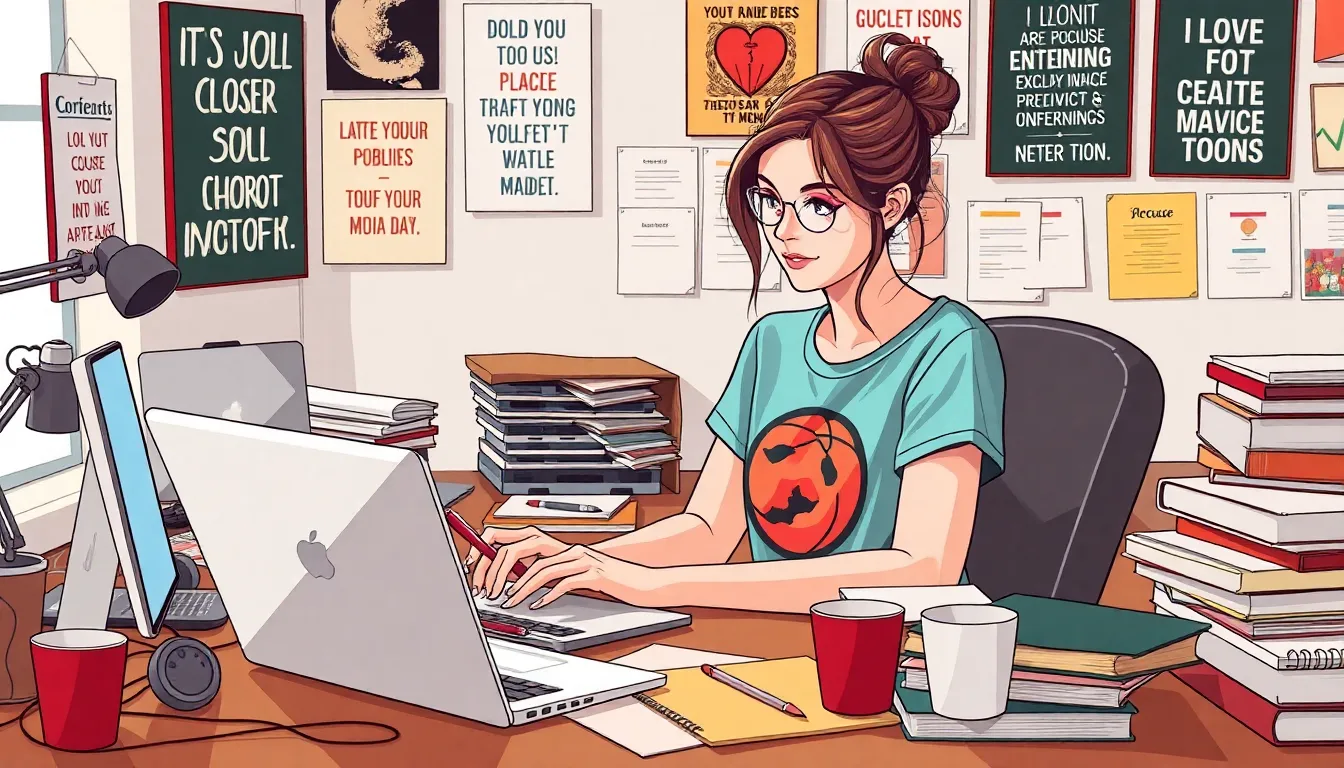In a world where the grind never stops, hustle culture memes have taken the internet by storm, blending humor with a dash of reality. They poke fun at the relentless pursuit of success, turning the daily grind into a relatable laugh. Who hasn’t scrolled through their feed and chuckled at a meme that perfectly captures the struggle of juggling a nine-to-five while chasing side hustles?
These memes highlight the absurdity of a culture that glorifies overwork and burnout, reminding everyone that sometimes it’s okay to take a break. With catchy slogans and hilarious visuals, hustle culture memes not only entertain but also spark conversations about work-life balance. So, whether you’re a self-proclaimed workaholic or just someone trying to survive Monday, these memes offer a lighthearted perspective on the hustle that defines modern life.
Table of Contents
ToggleUnderstanding Hustle Culture
Hustle culture emphasizes an intense work ethic, often glorifying relentless dedication to achieving one’s goals. This mentality frequently prioritizes productivity above personal well-being, leading to an environment that celebrates overwork and the neglect of self-care.
Definition of Hustle Culture
Hustle culture refers to the societal phenomenon that values constant work and productivity. It promotes the belief that individuals should always be striving for success through work, often at the expense of rest and leisure. This mindset infers that taking breaks or enjoying downtime is perceived as laziness. Many individuals, especially in entrepreneurial settings, feel pressured to engage in multiple jobs or side projects, reinforcing the notion that relentless effort equates to success.
Origins of the Meme
Hustle culture memes emerged as a response to the pressure many feel to constantly work. They often feature humorous or exaggerated depictions of late nights and relentless ambition, resonating with a generation grappling with burnout and job insecurity. Early examples began circulating on social media platforms in the early 2010s, reflecting the frustrations of young professionals. The memes juxtapose serious messages about hustle with lighthearted visuals, encapsulating the absurdity of sacrificing well-being for success. Through shared experiences and humor, these memes foster a sense of community, allowing users to critique arbitrary productivity standards while acknowledging their struggles.
The Impact of Hustle Culture Meme

Hustle culture memes significantly influence perceptions of work and productivity. They highlight both positive aspects and negative consequences of this phenomenon.
Positive Aspects
Hustle culture memes promote motivation and resilience, inspiring individuals to pursue their goals. They offer relatable content that fosters a sense of camaraderie among those facing similar challenges. These memes can encourage conversations about ambition and encourage people to share their experiences related to side hustles. By combining humor with serious messages, they provide an accessible way to navigate the pressures of modern work environments while also validating the hard work of those striving for success.
Negative Consequences
Hustle culture memes can inadvertently perpetuate unhealthy work habits and unrealistic expectations. They may encourage a mindset that glorifies overwork, leading individuals to neglect self-care and personal relationships. This relentless pursuit of productivity can contribute to burnout and mental health issues. Furthermore, these memes may reinforce the idea that constant work equates to self-worth, perpetuating a cycle of stress and anxiety. As individuals compare themselves to meme portrayals of success, they may feel inadequate or pressured to continuously perform at high levels.
How Hustle Culture Meme Influences Society
Hustle culture memes permeate various aspects of society, shaping perceptions of work and success. They resonate with audiences, fostering discussions about ambition and the cost of relentless productivity.
In Popular Media
Hustle culture memes prominently feature in movies, television shows, and advertisements. These portrayals often emphasize the relentless drive for success, reinforcing the idea that hard work leads to accolades. Popular media capitalizes on this trend, showcasing characters who sacrifice personal lives for professional achievements. For instance, television dramas often depict ambitious professionals neglecting relationships to climb the corporate ladder. These narratives push the notion that constant effort equates to fulfillment, further embedding hustle culture in societal norms and expectations.
On Social Media Platforms
Social media platforms have transformed hustle culture memes into viral sensations. Users share relatable content that humorously critiques overwork and burnout, appealing to a wide audience. Memes proliferate across platforms like Instagram and Twitter, where hashtags such as #HustleLife and #GrindTime trend frequently. Engaging visuals and captions create community and validation among users navigating similar challenges. These platforms foster dialogue around work-life balance, highlighting the tension between ambition and the necessity of self-care. While encouraging motivation, these memes can also perpetuate unrealistic standards, influencing how individuals view their personal and professional journeys.
Criticism of Hustle Culture
Criticism of hustle culture highlights the detrimental effects on mental health and the unrealistic economic expectations that arise from glorifying overwork.
Mental Health Implications
Hustle culture can significantly impact mental health. Chronic overwork leads to stress, anxiety, and depression. Employees and entrepreneurs often feel compelled to sacrifice personal well-being for professional success, causing burnout. Studies show that excessive work hours correlate with higher rates of mental health issues. The pressure to constantly pursue goals can create a toxic environment where individuals ignore signs of distress. The reliance on hustle culture memes may inadvertently normalize unhealthy work habits, exacerbating issues related to job-related fatigue and emotional exhaustion.
Economic Realities
Hustle culture also overlooks economic realities. Many individuals engage in side hustles due to financial instability, not merely ambition. Job insecurity prompts workers to take on extra responsibilities, further blurring the lines between personal and professional lives. This pressure to be constantly productive suggests that traditional employment is inadequate for financial success. Furthermore, the pursuit of multiple income streams can divert attention from much-needed rest, compromising overall productivity. The romanticization of hustle often ignores the stark employment disparities faced by many and minimizes the systemic barriers that prevent equitable economic opportunities.
Hustle culture memes encapsulate the complexities of modern work life. They spark essential conversations about the balance between ambition and well-being. While these memes can motivate and foster community, they also risk normalizing unhealthy work habits and unrealistic expectations.
As individuals navigate their professional journeys, it’s crucial to recognize the importance of self-care and mental health. The humor found in these memes serves as a reminder that success shouldn’t come at the expense of personal happiness. By embracing a more balanced approach, individuals can pursue their goals while maintaining their well-being.



